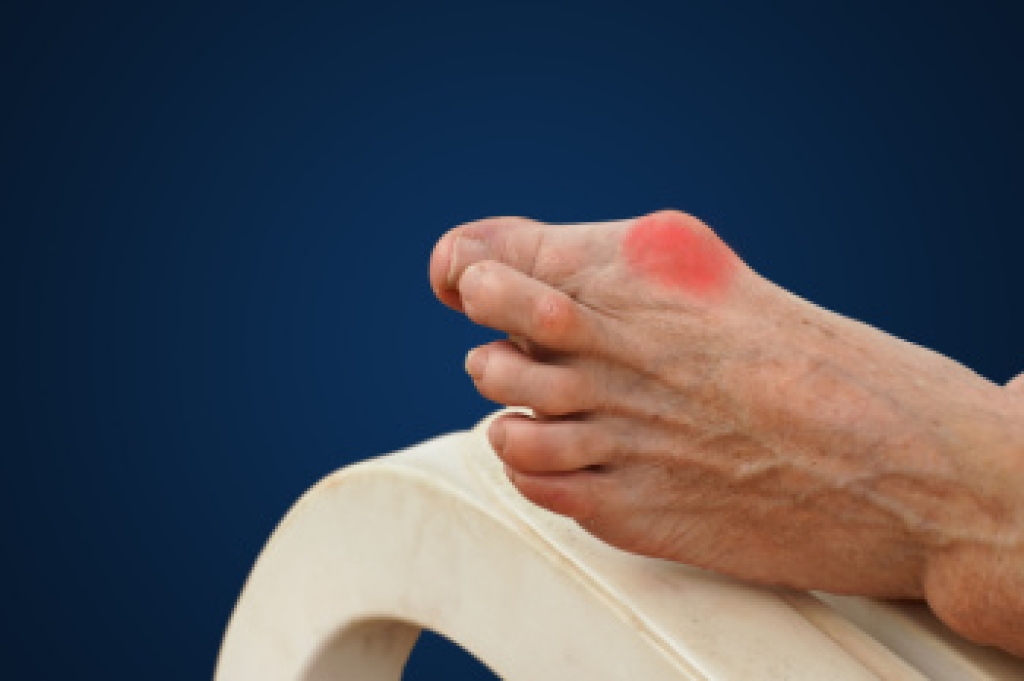
Bunions are bony bumps that form at the base of the big toe, where the joint becomes enlarged and misaligned. This condition often causes the big toe to lean toward the other toes, resulting in discomfort, swelling, and redness surrounding the joint. Symptoms include pain, difficulty wearing shoes, and stiffness, especially during walking or standing. Over time, bunions can lead to other foot issues, such as calluses, hammertoes, or arthritis. Bunions are caused by factors like genetics, wearing improper footwear, and foot stress from conditions like flat feet. Prevention involves wearing properly fitted shoes with enough room for toes to move. Treatment options range from non-invasive methods like orthotics to surgical correction for more severe cases. Early intervention helps prevent progression and improves quality of life. If you have an uncomfortable and painful bunion, it is suggested that you schedule an appointment with a podiatrist for a diagnosis and treatment individualized to you.
If you are suffering from bunions, contact one of our podiatrists of Carolina Foot & Ankle Specialists. Our doctors can provide the care you need to keep you pain-free and on your feet.
What Is a Bunion?
A bunion is formed of swollen tissue or an enlargement of boney growth, usually located at the base joint of the toe that connects to the foot. The swelling occurs due to the bones in the big toe shifting inward, which impacts the other toes of the foot. This causes the area around the base of the big toe to become inflamed and painful.
Why Do Bunions Form?
Genetics – Susceptibility to bunions are often hereditary
Stress on the feet – Poorly fitted and uncomfortable footwear that places stress on feet, such as heels, can worsen existing bunions
How Are Bunions Diagnosed?
Doctors often perform two tests – blood tests and x-rays – when trying to diagnose bunions, especially in the early stages of development. Blood tests help determine if the foot pain is being caused by something else, such as arthritis, while x-rays provide a clear picture of your bone structure to your doctor.
How Are Bunions Treated?
- Refrain from wearing heels or similar shoes that cause discomfort
- Select wider shoes that can provide more comfort and reduce pain
- Anti-inflammatory and pain management drugs
- Orthotics or foot inserts
- Surgery
If you have any questions, please feel free to contact our offices located in Mount Pleasant and Charleston, SC . We offer the newest diagnostic and treatment technologies for all your foot care needs.


